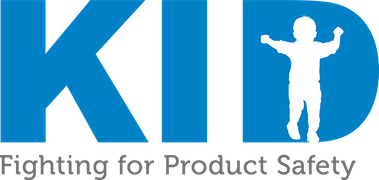WASHINGTON, D.C. — A coalition of consumer and safety groups today applauded the launch of the U.S. Consumer Product Safety Commission’s consumer product safety information database that would allow people to share and access safety information about the products they own and consider buying.
The groups — Consumer Federation of America, Consumers Union, Kids In Danger, Public Citizen, Union of Concerned Scientists, and the U.S. Public Interest Research Group — hailed the launch as a major step forward in educating consumers about product safety hazards and improving the CPSC’s ability to identify and act on problems in the marketplace. The database is up and running today online at www.SaferProducts.gov.
The database is required under the Consumer Product Safety Improvement Act (CPSIA) approved by Congress and signed by President Bush in 2008. As the debate over the federal budget continues in Congress, some lawmakers have pushed to defund the database. Manufacturers have also been pushing to undermine the database.
The CPSC has historically collected consumer complaints, but because the agency has been required to obtain the approval of companies before it could communicate with the public about a specific product, the information has been kept from the public for months or even years. The consumer complaint database will help shed light on the safety of products currently in the marketplace.
The CPSC database contains an array of protections to ensure that inaccurate information does not get published. Anonymous complaints will not be permitted, and only safety-related information will be posted. Complaints will not be considered for publication if 8 specific minimum fields are not completed. Businesses also get to see every report of harm before it is placed in the database, and have the opportunity to correct inaccurate information and to provide their own comments. These measures provide an appropriate balance between transparency for consumers and providing protections for manufacturers.
Rachel Weintraub, Director of Product Safety and Senior Counsel at Consumer Federation of America, stated, “Consumers will no longer be left in the dark about product safety — they will now have access to lifesaving information. The CPSC will also be able to more nimbly identify and act upon safety hazards. The database carefully balances the need to bring safety complaints to light, while also allowing manufacturers to review submissions and provide comments.”
Ami Gadhia, policy counsel for Consumers Union, the nonprofit publisher of Consumer Reports, said, “This is safety news consumers can use. Once the database is up and running, we think fears raised about the database will be shown to be unnecessary. This database will be a useful tool for consumers.”
Nancy Cowles, executive director of Kids In Danger, a nonprofit dedicated to protecting children from unsafe products, added, “This crucial tool will help parents keep their families safe. The database will fling open the windows at CPSC and allow consumers to learn of dangerous products before it is too late. The decades of hiding injuries and deaths for months or even years will end. Parents trust a lot of products with their children’s lives. The database puts information in the hands of those who need it most.”
Christine Hines, Public Citizen’s consumer and civil justice counsel, agreed. “Today begins a new era in consumer product safety – one that will empower consumers to help themselves to identify hazardous products. That’s why it’s imperative that Congress follows up its commendable action in creating the database by ensuring it continues to thrive with appropriate funding.”
Liz Hitchcock, U.S. PIRG Public Health Advocate, said, “The information exchange that SaferProducts.gov will provide for consumers is going to prevent injuries and save lives.”
Diana Zuckerman, Ph.D., President of the National Research Center for Women & Families/ Cancer Prevention and Treatment Fund stated, “The product safety database will give everyone the information they need to help protect themselves and their families. It’s a simple but effective strategy that will save lives and improve the quality of our lives.”
Celia Wexler, Washington Representative, Scientific Integrity Program, Union of Concerned Scientists, said, “The new database strengthens the transparency of CPSC and will enable scientists and researchers, both inside and outside the agency, to spot trends early and pro-actively. The ability to respond to problems before product defects harm scores of consumers benefits both the public and businesses.”
***
